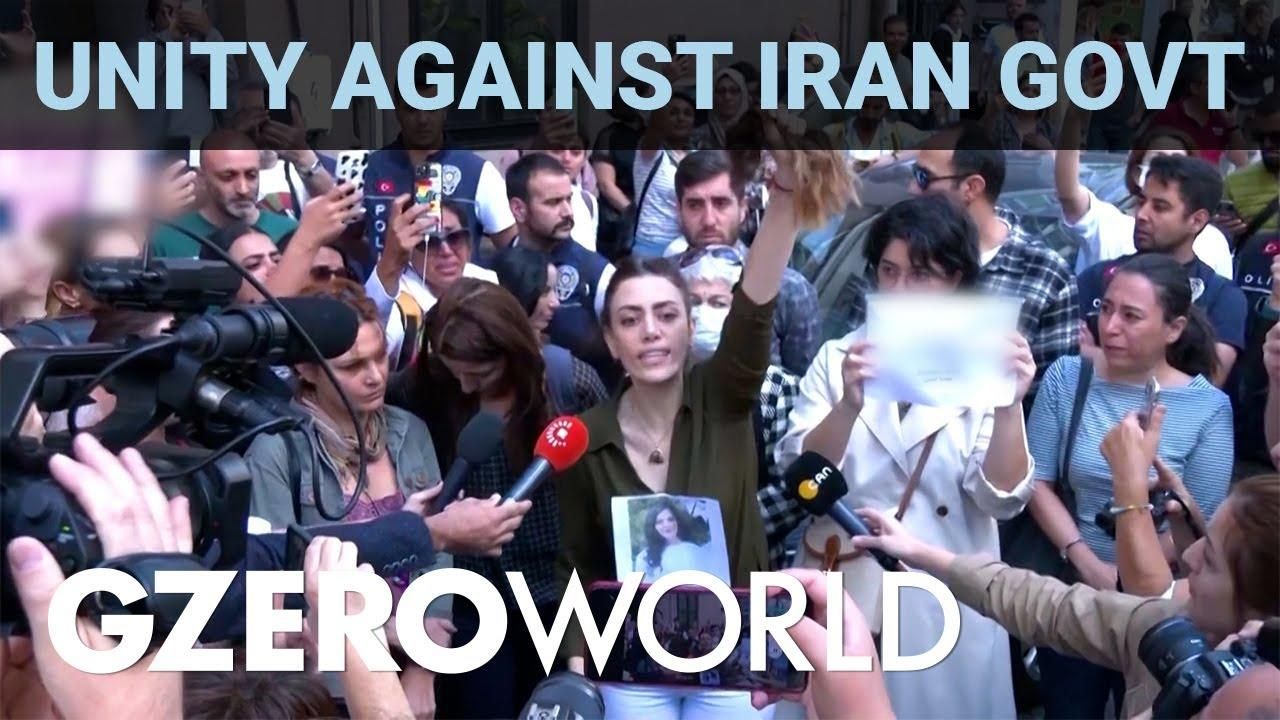
Protests Bringing Unprecedented Unity Among Iranians, Says Activist | GZERO WorldWatch the GZERO World episode: Iran v. the Islamic Republic: Fighting Iran’s gender apartheid regime
Iran's crackdown on the ongoing women-led protests against the regime has been fierce — but uneven. Protestors in the Kurdish region, for instance, have faced brutal, and frequently fatal backlash from the government.
Yet the people have come out everywhere.
Why? "The more that they kill, the more people get angry to take back to the streets," Iranian activist and journalist Masih Alinejad tells Ian Bremmer on GZERO World.
And the unity, she adds, is scaring the regime. For the first time in Iran's history, Alinejad says, people are setting aside long-held sectarian divisions — including toward minority Kurd and coming together to protest this regime.